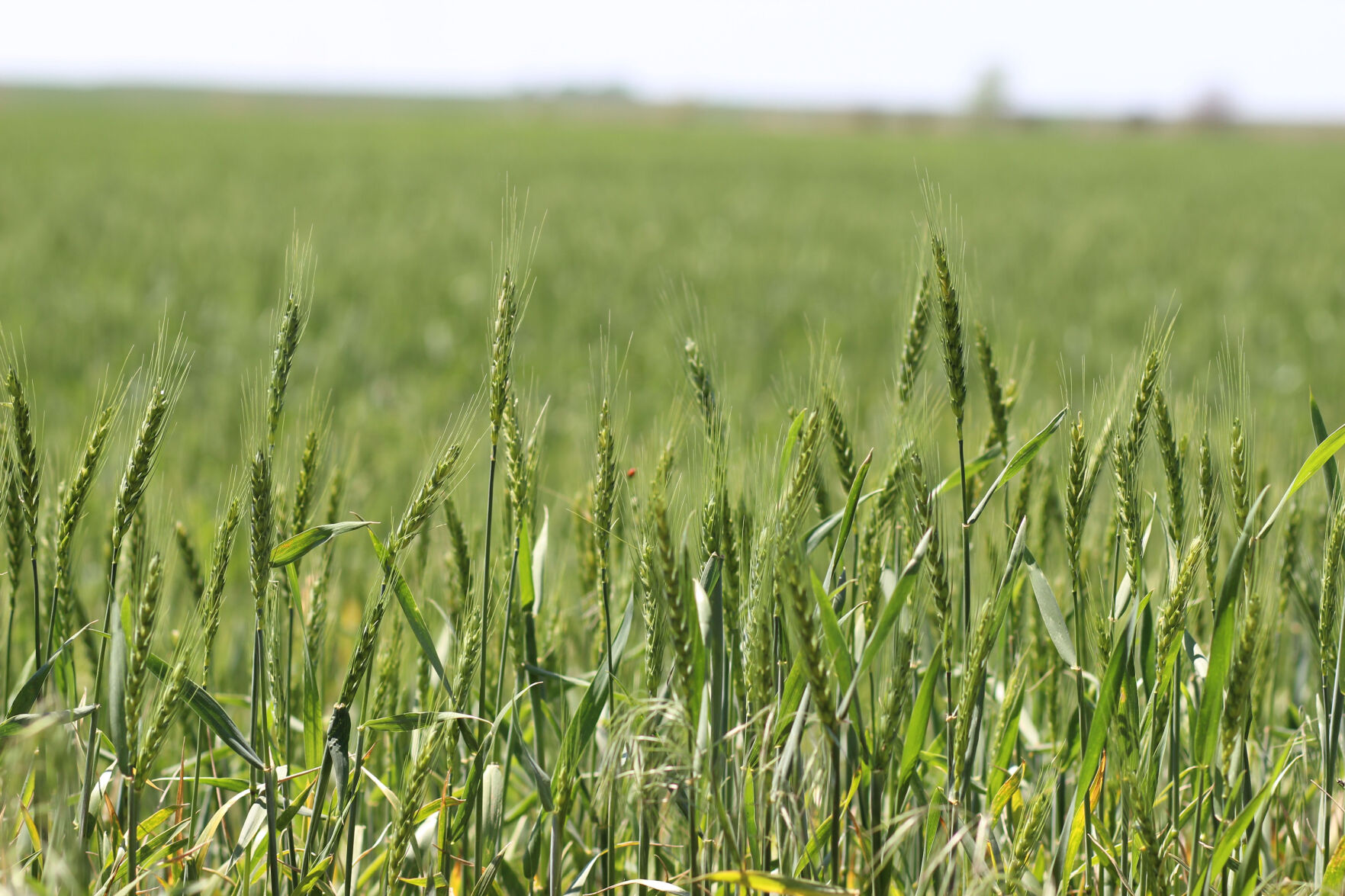The National Wheat Growers Association and the National Wheat Foundation held a press conference March 4 during Commodity Classic to inform constituents of happenings within the two groups.
NWF Vice Chairman David Cleavinger said the national wheat yield contest’s virtual reception was held recently with over 418 participants entered in the past year. That reception was held in honor of the wheat yield contest’s director, Steve Joehl, who recently retired.
“He has done a tremendous job over the past years to help increase wheat yields and show the different practices that have been incorporated to get those larger yields,” Cleavinger said. “Taking his place will be Anne Osborne, who will be the new project manager and will be working closely with producers to grow the number of participants in the wheat yield contest.”
Cleavinger said over the past few years, the NWF has regularly updated and improved the contest rules and implemented a new quality component for this year’s contest. This will help the wheat industry identify practices that increase yield, quality and profitability. Additionally, Cleavinger said NWF has another project underway to spread the word that wheat can increase the nutritional value of the American diet.
“There have been some studies that show if you increase the potassium levels in wheat, it can have a major impact on reducing heart disease,” he explained.
Next Dave Milligan, president of NAWG, explained that although NAWG offices normally rotate chairs each year, given the impact of COVID-19, the board voted to extend the terms of the current officers for another year.
“I’m excited to serve this organization as we have a lot of issues and opportunities for wheat farmers with the new Congress and administration,” Milligan said. “We’ve adopted our priorities for the year, which cover several topics, but the primary focuses are extending critical farm support programs, growing our international markets and engaging in climate discussions in a manner to represent wheat growers’ interests.”
To continue positioning wheat within in the climate change and sustainability issue, Milligan said NAWG is appointing a special committee to assist with the climate topic and protect the wheat industry.
Chandler Goule, CEO of NAWG and executive director of the NWF, closed out the press conference with some updates on the political and trade fronts.
"NAWG reached out to both the Trump and Biden campaigns last June with the major priority areas we wanted to see covered in the
wheat industry and as the election moved on and finally the results were in, we began meeting with the Biden transition team,” he said.
NAWG representatives started off by meeting with the new administration at the U.S. Department of Agriculture, the U.S. Trade Representative, as well as the Environmental Protection Agency. They also had the opportunity to visit with then Secretary of Agriculture nominee Tom Vilsack, EPA administrator nominee Michael Regan and USTR nominee Katherine Tai.
“One of the things we did to prepare for those meetings with the new transition team was to meet with five of the undersecretaries of the outgoing USDA administration just to see what was in the pipelines and what we needed to be cognizant of because we know when a major administration changes, there is always something that can fall through the cracks and we wanted to make sure that didn’t happen,” Goule explained.
He went on to say wheat’s national representation is striving to educate the different coalitions with food companies, the Biden
administration and the Senate, is to emphasize that one size will not fit all for commodities, and definitely not for wheat.
“We’ve got some areas where we grow wheat and it is in a constant rotation with corn and soybeans and makes for an excellent balance there, but the further west you move and some places out in the Pacific Northwest, wheat is the only thing you can grow and sometimes planting a cover crop competes with the moisture that we need for the wheat for the following year,” Goule said. “As this administration and the legislation continues to move forward with what they want to do for carbon and climate, we need to make sure that they understand that there are different things that need to be taken into consideration in order for wheat to be able to thrive in these programs.”
According to Goule, NAWG has already started outreach with a seven-person team in Washington and has been talking with Sec. Vilsack and Robert Bonnie, who has been appointed senior advisor on climate. Furthermore, Goule said any kind of climate legislation needs to be voluntary, recognize early adopters, should not be one size fits all, and needs to recognize the different wheat regions. Additionally, he hopes actual growers will be at the table during the development of this legislation. Apart from climate programs, Goule said NAWG is excited to see progress continue on trade with China and move through the rest of phase one and into phase two.
“We have also been talking to the Biden administration about making sure we get the World Trade Organization back up and running because wheat and rice growers have won two cases in the WTO over the past couple years that need to be finalized,” he said.
Sign up for HPJ Insights
Our weekly newsletter delivers the latest news straight to your inbox including breaking news, our exclusive columns and much more.
Lastly, Goule said NAWG is focused on reaching out to the new congress and getting them up to speed on wheat issues as well as outlining priorities for the 2023 farm bill.
Lacey Newlin can be reached at 620-227-1871 or [email protected].




